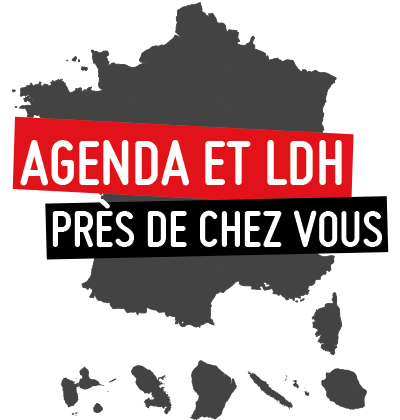Excellencies,
The undersigned family members of victims of police killings and civil society organizations from around the world, call on member states of the UN Human Rights Council to urgently convene a Special Session on the situation of human rights in the United States in order to respond to the unfolding grave human rights crisis borne out of the repression of nationwide protests. The recent protests erupted on May 26 in response to the police murder of George Floyd in Minneapolis, Minnesota, which was only one of a recent string of unlawful killings of unarmed Black people by police and armed white vigilantes.
We are deeply concerned about the escalation in violent police responses to largely peaceful protests in the United States, which included the use of rubber bullets, tear gas, pepper spray and in some cases live ammunition, in violation of international standards on the use of force and management of assemblies including recent U.N. Guidance on Less Lethal Weapons.
Additionally, we are greatly concerned that rather than using his position to serve as a force for calm and unity, President Trump has chosen to weaponize the tensions through his rhetoric, evidenced by his promise to seize authority from Governors who fai l to take the most extreme tactics against protestors and to deploy federal armed forces against protestors (an action which would be of questionable legality).
Our greatest concern is that the violence and counter – violence are diverting the gaze of the g lobal community away from the pain being expressed by a nation in mourning over the callous manner of the 8 minutes and 46 seconds that ended George Floyd’s life while a group of police stood and watched, about the death of more than 100,000 souls from the coronavirus – disproportionately killing Black, Brown and Indigenous Peoples – and about how injustice never ends and equality never comes. There is serious concern that the tear gas and police – induced havoc will obscure the legitimate passion of these demonstrations. The voices of the demonstrators must be heard. Their demand is that the endemic racism, hatred, fear and disparity finally be confronted.
News media reported that seven people were struck by gunfire at a protest in Louisville ; at least one person – David McAtee, who was serving food to protesters at a demonstration – was killed by police gunfire in Kentucky. In Ohio, pepper spray was used on large crowds. Reports by journalists on social media indicate that rubber bullets were used in numerous places, including 2 Phoenix, Arizona, Los Angeles, California, Atlanta, Georgia, and Minneapolis, Minnesota. According to the U.N. High Commissioner for Human Rights , there have been “at least 200 reported incidents of journalists covering the protests being physically attacked, intimidated or arbitrarily arrested, despite their press credentials being clearly visible.” The police arrested more than 11,000 people across the United States.
Furthermore, it appears that police departments across the United States, backed by federal government agencies (like CBP , which regularly violates civil and human rights ), are escalating the situation with further militarization and excessive use of force against protesters. We note with particular concern the deployment of at least 62,000 National Guard soldiers in two dozen states, the encouragement of the use of violence and mass arrests by President Donald Trump on social media, and his labeling o f the protesters as “terrorists .” Several cities around the country have imposed sweeping night curfews that trigger ed further inflam mation of the atmosphere and create yet another justification for additional police violence and arrests.
It is well established that neither the use of violence by a small number of people or damage to property suspend the right to protest of all those gathered and do not provide a license to escalate police responses and use of excessive or deadly force. In all circumstances , the police response must remain within the limits of the law and seek to de – escalate situations rather than inflame them by resorting to life – threatening weapons.
The right to peaceful assembly and demonstration must be protected. This mandate is even more compelling with regard to the rights of minority communities, especially people of African descent, to speak out against racist practices they have endured for ce nturies. Recent police killings of unarmed Black people as well as police use of excessive force and repression of protests violate United States obligations under the International Covenant on Civil and Political Rights (ICCPR), the Convention against Tor ture and Other Cruel, Inhuman or Degrading Treatment or Punishment (CAT), and the International Convention on the Elimination of All Forms of Racial Discrimination (ICERD).
Finally, the massive use of less – lethal weapons is compounded by the fact that the United States is one of the worst – hit countries by the global pandemic. Health experts warned that the use of tear gas may place individuals at a higher risk of contracting a respiratory illness and can have long – term effects on respiratory function. We are also concerned that mass arrests and detention of protesters will only exacerbate the risk of infection in jails that are already an epicenter of the Covid-19 pandemic in the United States.
In light of these grave concerns, the undersigned urge the members of the U.N. Human Rights Council to convene a special session of the HRC in order to respond appropriately to this situation of escalating human right abuses with the aim of mandating an independent inquiry into:
▪ the recent history of racist policing in cities across the country that continues with seeming impunity from the killing of Michael Brown and the repres sion of protests in Ferguson, Missouri, to the murder of George Floyd.
▪ allegations of excessive use of force against peaceful protesters and journalists in the demonstrations in U.S. cities since the murder of George Floyd.
The inquiry should report its f indings to the Human Rights Council and should include recommendations on how to ensure that the United States upholds its human rights obligations, including in the context of policing, protests and assemblies. Further , the report should address the respo nsibility of the United States to end impunity for police violence and other serious human rights violations through appropriate disciplinary actions, prosecutions and fair trials.
The Council should call on the United States to give those conducting this inquiry, as well as other U.N. officials (including special procedures mandate holders), full and unrestricted access to interview witnesses , including members of the police, to inspect places of detention , and to monitor trials related to the protests and their aftermath.
Télécharger la lettre en format PDF avec la liste complète des signataires


